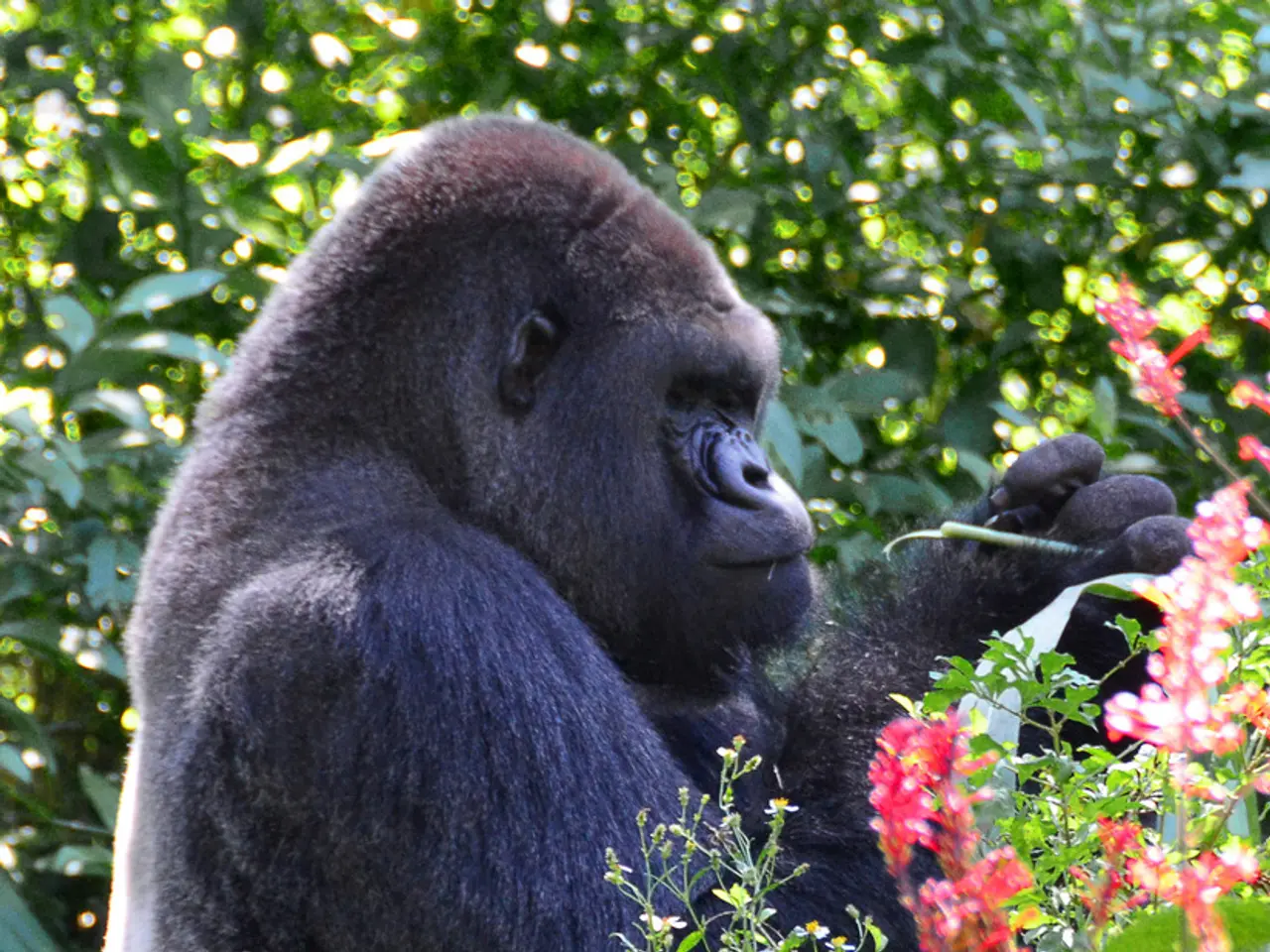Mountain gorillas' study reveals a preference for forming female friend groups
In a groundbreaking 20+ year study in Rwanda, researchers from the University of Zurich and the Dian Fossey Gorilla Fund have discovered that female mountain gorillas' decisions to change social groups are heavily influenced by their past social interactions with other females.
The study, published in the Proceedings of the Royal Society B, reveals that when females transfer to a new group, they tend to actively seek out and reconnect with familiar females, forming lasting emotional ties and alliances. This behaviour indicates strong long-term social bonds among females that influence their dispersal choices.
Interestingly, female gorillas also avoid joining groups containing males they grew up with, likely as a strategy to reduce inbreeding risk since they do not know their paternal kin with certainty. This avoidance is based on memory and social experience rather than group size or sex ratio.
Victoire Martignac, a Ph.D. student from the University of Zurich, states that despite the transient nature of their lives, these relationships can matter even after years apart. Robert Seyfarth, an emeritus professor of psychology at the University of Pennsylvania, agrees, suggesting that female gorillas seem to be making decisions about where to disperse based on relationships they've had before.
The research provides a deeper understanding of the social complexity and memory capabilities shaping female mountain gorillas' social group dynamics. Female gorillas are attracted to groups containing females they recognise from the past, and this preference might make a difference in terms of survival and reproduction.
The composition of groups matters to female gorillas, as they prefer to join groups that have former female associates. In fact, female gorillas strongly prefer to join a group that had females they'd lived with for at least 5 years or had seen in the last two years.
The study was made possible due to decades of close observations by trackers affiliated with the Dian Fossey Gorilla Fund. Thanks to these observations, researchers know which gorillas belong to each social group and where they go when they leave that group.
Robert Seyfarth notes that the fact that female gorillas pay attention to the composition of groups raises the possibility that groups have relations with each other that are interesting, forming a kind of community. Martignac suggests that the ability of gorillas to maintain old relationships while creating new ones is a trait that goes far back into the evolutionary past.
This research not only deepens our understanding of the social lives of mountain gorillas but also offers insights into the evolutionary roots of movement and dispersal in humans, as both humans and gorillas share similarities in their mobility and flexibility.
- The study indicates that the composition of a community plays a significant role in female mountain gorillas' decisions about where to disperse, as they prefer to join groups that have former female associates.
- The ability of female gorillas to maintain old relationships while creating new ones, as seen in their preference for joining groups containing females they recognize from the past, may have evolutionary roots shared with humans.




